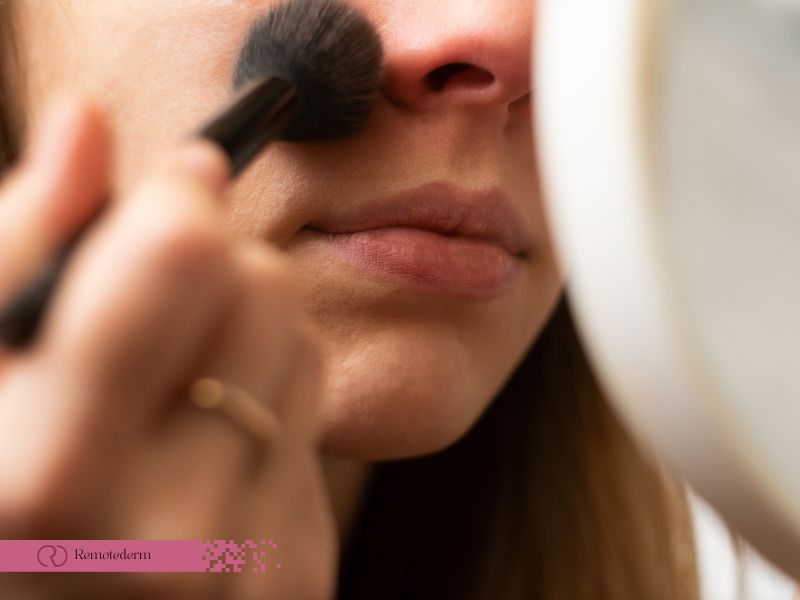Are you struggling with acne and feeling self-conscious about your skin? Don’t worry, you’re not alone. Acne is a common skin condition that affects millions of people, and it can be frustrating to deal with on a daily basis. Fortunately, there are many makeup products and techniques that can help you cover up acne and achieve a flawless look.
In this ultimate guide to covering acne with makeup, we will cover everything you need to know about using makeup to hide your acne. From the best products to use to the techniques that will help you achieve a natural-looking finish, we’ve got you covered.
Prepping Your Skin for Makeup
To ensure appropriate skincare preparation, it is crucial to effectively prime your skin prior to applying any cosmetics. This step will ensure that your makeup looks smooth and stays put throughout the day. Follow these steps to prep your skin for makeup:
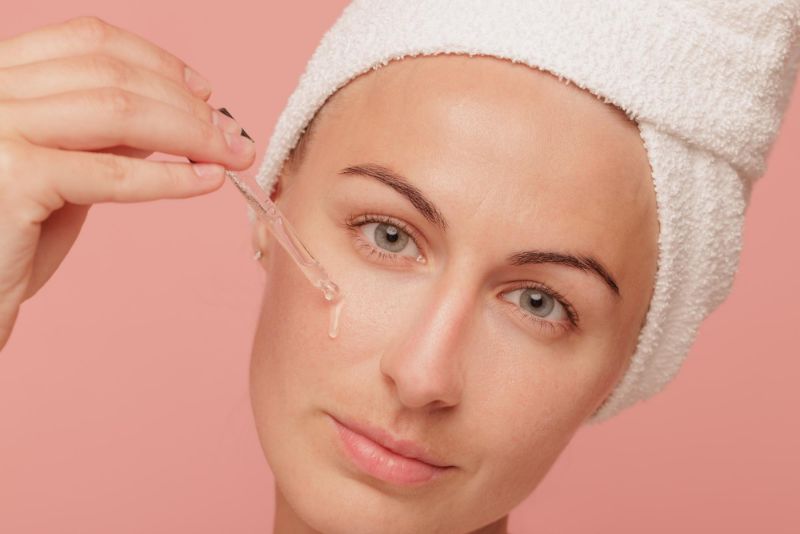
- Cleanse:
Begin the process by purifying your facial skin using a mild cleanser, which effectively eliminates impurities, excess oil, and residual makeup. This step will also help unclog your pores, preventing further breakouts.
- Exfoliate:
Exfoliating your skin can help remove dead skin cells that can clog pores and lead to acne. In order to maintain a smooth and blemish-free complexion, incorporate the use of a mild exfoliating scrub into your skincare routine once or twice a week.
- Moisturize:
Apply a lightweight, non-comedogenic moisturizer to hydrate your skin and create a smooth base for your makeup. Look for a moisturizer with hyaluronic acid, which can plump up your skin and reduce the appearance of fine lines.
Choosing the Right Makeup Products
When it comes to covering acne, the right makeup products are crucial. Look for products that are oil-free, non-comedogenic, and designed specifically for acne-prone skin. Here are the essential makeup products you’ll need to cover up your acne:
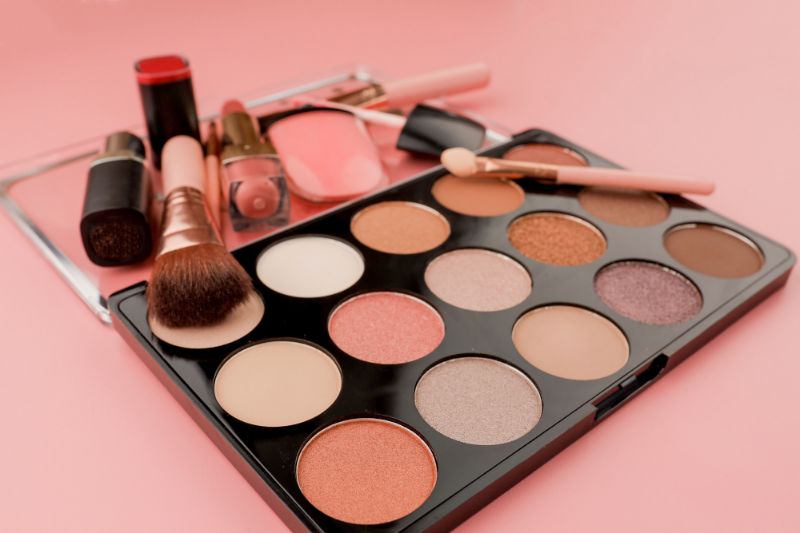
- Primer:
A primer will help smooth out your skin’s texture and create a barrier between your skin and makeup, preventing clogged pores. Look for a primer that contains salicylic acid or benzoyl peroxide, which can help treat and prevent acne.
- Concealer:
A good concealer is essential for covering up acne. Choose a concealer that has a creamy, blendable texture and matches the color of your skin. You may also want to consider a concealer that contains salicylic acid or other acne-fighting ingredients.
- Foundation:
A good foundation can help even out your skin tone and provide long-lasting coverage. Look for a foundation that is oil-free, non-comedogenic, and contains ingredients like salicylic acid or benzoyl peroxide to help treat and prevent acne.
- Setting Powder:
A setting powder will help lock your makeup in place and prevent it from smudging or transferring throughout the day. Look for a translucent powder that is lightweight and won’t clog your pores.
Applying Makeup to Cover Acne
Now that you have the right products, it’s time to apply them to cover up your acne. To achieve a perfect finish, follow these steps:2
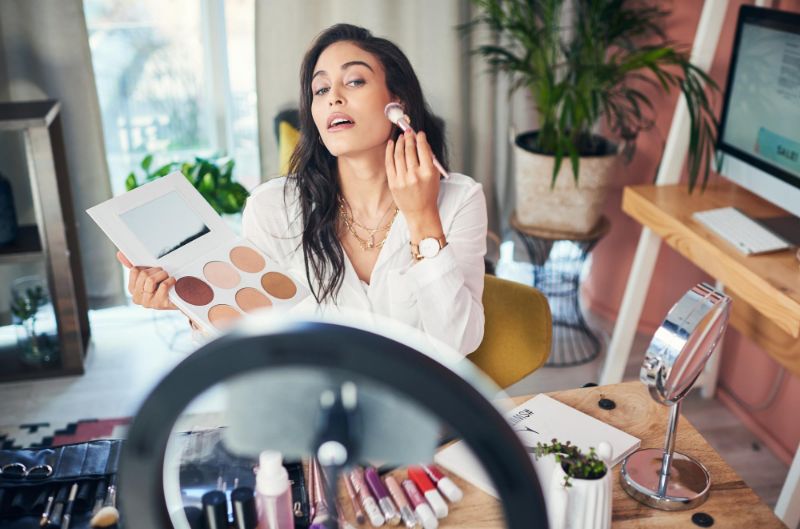
Step 1: Apply Primer
The first step in applying makeup to cover acne is to apply a primer. A primer helps create a smooth surface for your makeup and can help your makeup last longer. When choosing a primer, look for one that is oil-free and non-comedogenic, as this will help prevent further breakouts. Apply a small amount of primer all over your face, focusing on any areas where you have acne. You can use your fingers or a brush to blend it in evenly.
Step 2: Apply Concealer
Next, it’s time to apply concealer. Pick a concealer that is compatible with your skin tone first. If you have red or inflamed acne spots, you may want to consider using a green color-correcting concealer to neutralize the redness before applying your regular concealer. Apply the concealer directly to your acne spots, using a small brush or your finger to blend it in. Be sure to apply the concealer in thin layers, building up coverage as needed.
Step 3: Apply Foundation
Once you’ve concealed your acne spots, it’s time to apply foundation. When choosing a foundation, look for one that is oil-free and non-comedogenic, as this will help prevent further breakouts. You can use a sponge or brush to apply foundation, but be sure to blend it in evenly. Focus on blending the foundation down your neck to avoid any harsh lines. If you have large pores or textured skin, you may want to consider using a beauty blender to help achieve a more even finish.
Step 4: Set with Powder
Finally, it’s time to set your makeup with powder. This step is crucial, as it will help your makeup stay in place and prevent any shine or oiliness throughout the day. Try to find a translucent powder that won’t change the shade of your concealer or foundation. Use a fluffy brush to dust the powder all over your face, focusing on any areas that tend to get oily, such as your T-zone.
Tips and Tricks for Covering Acne with Makeup
While the above steps can help you cover up your acne with makeup, there are also some additional tips and tricks that can help you achieve a flawless finish:
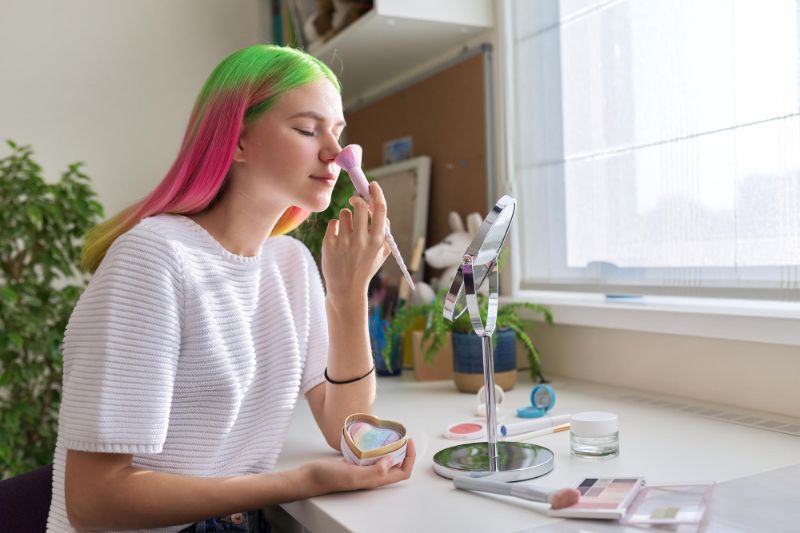
- Color Correcting: If you have red or inflamed acne spots, consider using a green color-correcting concealer to neutralize the redness before applying your regular concealer. You can achieve a more even skin tone by doing this.
- Layering: To achieve maximum coverage, you may need to layer your products. Start with a thin layer of concealer, then build up coverage with additional layers as needed. Be sure to blend each layer well to avoid any cakey or patchy spots.
- Spot Concealing: Instead of applying foundation all over your face, you may want to try spot concealing. This technique involves only applying foundation to areas that need it, which can help you achieve a more natural-looking finish. Be sure to blend the foundation well into your skin to avoid any harsh lines.
- Avoid Heavy Makeup: While it may be tempting to pile on the makeup to cover up your acne, this can actually make your skin look worse. Heavy makeup can clog your pores and lead to more breakouts. Instead, focus on using lightweight, breathable products that won’t suffocate your skin.
- Use a Light Hand: When applying makeup, it’s important to use a light hand to avoid emphasizing any texture or bumps on your skin. Use a soft, fluffy brush to blend in your makeup, and avoid pressing too hard.
Skincare Tips for Acne-Prone Skin
Acne-prone skin can be challenging to deal with, but with the right skincare routine, you can help prevent future breakouts and keep your skin looking its best. Here are some skincare tips to help you manage acne-prone skin:
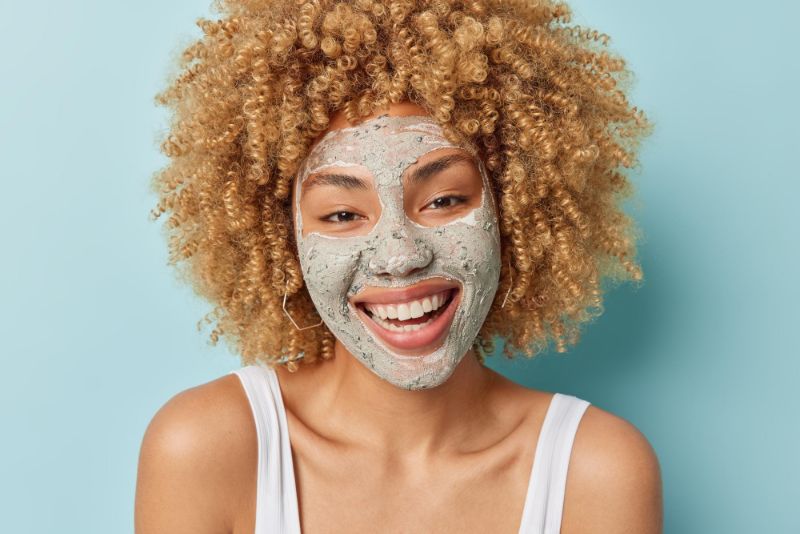
- Cleanse Twice a Day
Cleansing your skin is a crucial step in any skincare routine, but it’s especially important if you have acne-prone skin. Make sure to cleanse your skin twice a day, once in the morning and once at night, to remove any dirt, oil, and makeup that can clog your pores and lead to breakouts.
When choosing a cleanser, look for a gentle, non-comedogenic formula that won’t strip your skin of its natural oils. Avoid cleansers that contain fragrances or other irritants that can further irritate your skin.
- Use Non-Comedogenic Products
When it comes to skincare products, it’s essential to look for ones that won’t clog your pores. Non-comedogenic products are specifically formulated to avoid clogging pores and are less likely to cause breakouts.
Avoid using heavy oils or products that contain fragrances or other irritants that can further aggravate your skin. Instead, opt for lightweight, oil-free moisturizers and serums that are designed for acne-prone skin.
- Exfoliate Regularly
Once or twice a week exfoliation can help to remove dead skin cells and avoid clogged pores. It is important to exercise caution and avoid excessive exfoliation, as it can lead to skin irritation and harm.
When choosing an exfoliant, look for one that contains gentle, non-abrasive ingredients, such as alpha-hydroxy acids (AHAs) or beta-hydroxy acids (BHAs). These ingredients work to gently dissolve dead skin cells and unclog pores without causing irritation.
- Moisturize
Regardless of having oily skin, it remains essential to moisturize in order to maintain proper hydration and promote overall skin health. When your skin is dehydrated, it can produce more oil, which can lead to breakouts.
Try to find oil-free, lightweight moisturizers that won’t clog your pores. You can also look for moisturizers that contain acne-fighting ingredients, such as salicylic acid or benzoyl peroxide, to help prevent breakouts.
- Avoid Touching Your Face
Touching your face can transfer dirt, oil, and bacteria to your skin, leading to breakouts. Avoid touching your face as much as possible, and if you absolutely must, wash your hands first.
If you wear glasses or sunglasses, make sure to clean them regularly, as they can also transfer oil and bacteria to your skin. Try to avoid resting your chin or cheeks on your hands, as this can also transfer oil and bacteria to your skin.
Discover expert insights on managing acne outbreaks and preventing scarring – Click to read now!
By following these skincare tips, you can help prevent future breakouts and keep your skin looking its best. It’s crucial to maintain patience as visible results may require some time to become apparent. If you’re struggling with persistent acne, consider talking to a dermatologist for personalized advice and treatment options.
Conclusion
In conclusion, dealing with acne can be frustrating, but with the right makeup products and techniques, you can achieve a flawless look. The ultimate guide to covering acne with makeup includes prepping your skin, choosing the right makeup products, and applying them flawlessly.

Remotederm online dermatology consultation services can be accessed from anywhere in Canada, eliminating the need for long waits to visit dermatologists in person, making it easier for those struggling with acne to get the help they need. Follow our guide and feel confident in your own skin!
FAQs
- Why is it important to prep your skin before applying makeup?
Prepping your skin is important before applying makeup because it ensures that your makeup looks smooth and stays put throughout the day. Cleansing removes dirt and unclogs pores, exfoliating removes dead skin cells that can clog pores, and moisturizing hydrates your skin and creates a smooth base for your makeup.
- What are the essential makeup products needed to cover up acne?
The essential makeup products needed to cover up acne are primer, concealer, foundation, and setting powder. These products should be oil-free, non-comedogenic, and designed specifically for acne-prone skin.
- What is the purpose of a concealer when covering acne?
The purpose of a concealer when covering acne is to hide any blemishes or discoloration. A good concealer should match your skin tone and have a creamy, blendable texture.
- Why is setting powder important when covering acne with makeup?
Setting powder is important when covering acne with makeup because it helps lock your makeup in place and prevent it from smudging or transferring throughout the day. Look for a translucent powder that is lightweight and won’t clog your pores.
- Can makeup products cause acne?
Yes, makeup products can cause acne if they contain pore-clogging ingredients or if they are not removed properly. It’s important to choose makeup products that are non-comedogenic and to always remove your makeup before going to bed.
